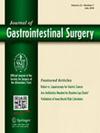Evaluating Accountable Care Organizations impact on gastrointestinal cancer care: are they falling short on health outcomes?
IF 2.2
3区 医学
Q3 GASTROENTEROLOGY & HEPATOLOGY
引用次数: 0
Abstract
Background
Accountable Care Organizations (ACOs) have emerged as a value-based care model. However, the effect on gastrointestinal (GI) cancer care remains poorly defined. Therefore, the current study aimed to investigate the effect of hospital ACO participation on surgical and financial outcomes.
Methods
Patients who underwent GI cancer surgery between 2016 and 2020 were identified from the Medicare Standard Analytic Files. Difference-in-differences (DID) analysis was performed to examine the effect of hospital ACO participation on surgical outcomes and healthcare expenditures.
Results
A total of 23,357 beneficiaries underwent GI cancer surgery at 2180 hospitals (ACO participating: 57 [2.7%]). The median patient age was 75 years (IQR, 71–81). Moreover, most patients were female (12,207 [52.3%]) and had a Charlson Comorbidity Index score of >2 (14,067 [54.3%]). On DID analysis, after adjusting for patient and hospital baseline characteristics, ACO participation was not associated with a reduced risk of complications during the index hospitalization (RRR [relative risk ratio], 1.03 [95% CI, 0.90–1.18]; P =.71), extended length of stay (RRR, 1.04 [95% CI, 0.92–1.67]; P =.52), 30-day complication (RRR, 1.96 [95% CI, 0.72–1.27]; P =.77), 30-day readmission (RRR, 1.07 [95% CI, 0.92–1.25]; P =.96), or 30-day mortality (RRR, 0.96 [95% CI, 0.77–1.21]; P =.74). Moreover, ACO participation was not associated with reduced healthcare costs.
Conclusion
Hospital participation in ACOs was not associated with improved surgical outcomes or reduced healthcare costs. There is a need for nuanced, targeted interventions within the ACO framework that address the unique needs of complex surgical patients.
求助全文
约1分钟内获得全文
求助全文
来源期刊
CiteScore
5.50
自引率
3.10%
发文量
319
审稿时长
2 months
期刊介绍:
The Journal of Gastrointestinal Surgery is a scholarly, peer-reviewed journal that updates the surgeon on the latest developments in gastrointestinal surgery. The journal includes original articles on surgery of the digestive tract; gastrointestinal images; "How I Do It" articles, subject reviews, book reports, editorial columns, the SSAT Presidential Address, articles by a guest orator, symposia, letters, results of conferences and more. This is the official publication of the Society for Surgery of the Alimentary Tract. The journal functions as an outstanding forum for continuing education in surgery and diseases of the gastrointestinal tract.

 求助内容:
求助内容: 应助结果提醒方式:
应助结果提醒方式:


